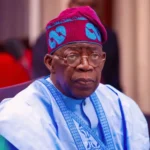A new political party formed by former President Jacob Zuma scored a double legal victory ahead of next month’s national elections, winning the right to use the powerful name and symbols of the governing African National Congress’ (ANC) historic anti-apartheid armed wing, as well as clearing a path for the 82-year-old’s own controversial candidacy.
Monday’s Durban High Court ruling dismissed the ANC’s application to block Zuma’s upstart MK party from using the “Umkhonto we Sizwe” (“Spear of the Nation”) name and iconic logos associated with the military force that fought white minority rule.
The decision caps a remarkable political resurgence for Zuma amid his legal travails over corruption allegations he has long denied. Earlier this month, an electoral court overturned a ban on his candidacy for a parliamentary seat, despite his 2021 jail sentence for defying a corruption inquiry.
The constitution bars people convicted of crimes resulting in jail terms exceeding 12 months from holding public office. However, the electoral court accepted Zuma’s argument that his 15-month sentence was effectively “cancelled” after being granted a remission by President Cyril Ramaphosa, who fired him in 2018. The electoral commission has urgently appealed that ruling to the Constitutional Court.
In Monday’s trademark case, Judge Mahendra Chetty ruled the ANC’s claim did not extend to the political use of the MK branding, dealing a symbolic blow against the governing party’s long-standing claim as custodian of the anti-apartheid struggle’s legacy.
Visvin Reddy, the MK party’s leader in Zuma’s KwaZulu-Natal stronghold, where he retains a devout following said it was best possible outcome for the party.
He told the TV channel Newsroom Afrika from outside the courtroom in Durban that the ANC’s legal challenges to the party’s existence showed it was running scared.
He added that the high court was also not the forum to “settle a dispute where there are competing historical accounts of events which took place almost 60 years ago, as to who may rightfully lay claim to the name uMkhonto we Sizwe”.
While a fringe player nationally, the MK party could benefit from its ability to leverage powerful branding from the revered liberation struggle. It could siphon support from ANC strongholds, potentially impacting the governing party’s bid to retain an outright parliamentary majority on May 29.
When it came to the symbols confronting voters on the ballot paper, the judge said he was of the view that there would be no confusion.
The ANC’s trademark over the MK symbol was registered for “education; providing of training; entertainment; sporting and cultural activities”, he said.
“It was not entirely clear to me how the use of the mark in political activities” would fall under that category, he added.
The ANC swiftly vowed to appeal the “unfortunate” trademark ruling, with Secretary-General Fikile Mbalula insisting, “This is about our legacy and heritage…We will appeal to stop the unlawful use of the ANC’s trademarks and symbols.”
Zuma remains a polarizing figure but commands strident loyalty among supporters who view the former president as an anti-establishment reformer persecuted by perceived allies of “white monopoly capital.”
His MK party aims to tap into that populist narrative around achieving “economic freedom” from racial inequalities that persist nearly 30 years after apartheid’s end.









